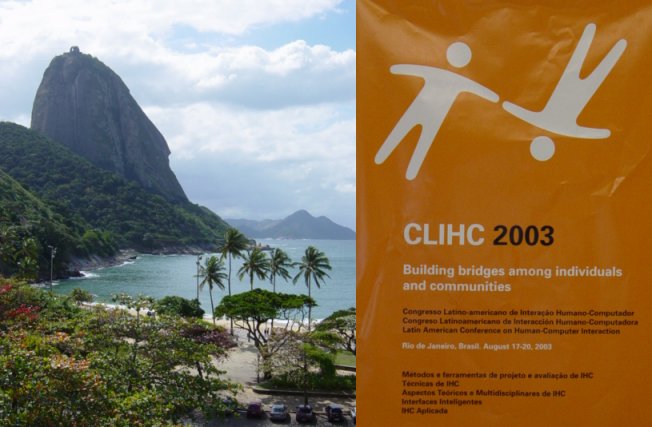| Important dates
- Submissions deadline: April 12th,
2003 (closed)
- Notifications to authors:
May 10, 2003
- Camera-ready: May 31, 2003
|
Call for Participation
Panels stimulate thought and discussion about ideas and issues of
interest to the human-computer interaction community. They typically
focus on controversial or emerging topics and are designed to explore
a range of different viewpoints. Domain experts conduct an interactive
discussion with the overall goal of helping audience members to
broaden their understanding of the issues and perhaps even to modify
their views. Panels last 90 minutes and typically include three
to five panelists plus a moderator.
Types of Panels
Panels should focus on controversial, emerging, or unresolved issues.
Panels are an especially appropriate format for discussing pressing
questions in HCI practice and theory, emerging trends and technologies,
and social issues associated with technology.
Panels may take many approaches. Some are analytic;
they analyze and synthesize current practices in the various fields
of HCI. Some are comparative; they compare distinct approaches,
techniques, and models to a particular problem including evaluation,
design, and implementation. They may focus attention on the theme
of the conference or special areas and tracks within the conference.
Panels should target a specific audience, and submissions need to
identify this audience (e.g. newcomers to HCI, practitioners, researchers,
etc.). We encourage the submission of new types of panels and innovation
in the format of presentation, particularly those that stimulate
a high degree of interaction among the panelists and between the
panelists and the audience, and that create a compelling and effective
audience experience.
Panel Formats
Panels must enable spontaneous, interactive discussion. One approach
is to limit each panelist to an initial 5-minute position statement.
Then the panel takes questions posed by the moderator, and later
by the audience. Casual but carefully structured interviews with
articulate and interesting experts have also been successful. You
are strongly encouraged to be creative and suggest other formats
that will stimulate interaction and discussion and engage the audience,
especially those taking advantage of interactive communication before,
during, and after the conference.
Review Process and Criteria
Each proposal will be reviewed by at least 3 members of the HCI
community. We are looking for stimulating and timely issues debated
by well-informed and engaging panelists, and a program that represents
the diversity and current issues in our field. Controversy is encouraged,
as are unique and diverse topics. We are especially interested in
formats that generate interaction and discussion among panelists
and with the audience; this is not the place for a series of prepared
presentations.
Preparing Submissions
A Panel submission requires a proposal of no more than six pages.
All submissions should be written in one of the official conference
languages: Portuguese, Spanish, or English. Please email the zipped
PDF file of your submission to the workshop co-chairs at clihc2003_panels@inf.puc-rio.br.
If you cannot generate a PDF file, please contact the co-chairs
at this same email before the submission deadline. The submission
is due on March 24th, 2003. All submissions must be formatted according
to the conference guidelines and templates.
Panel Proposal
Prepare a two- to six-page panel proposal that includes:
- A vision statement that contains the following information:
- A description of the issues to be addressed by the panel;
- Controversial aspects of the panel and its relevance to CLHCI;
- The intended audience;
- A description of the panel format. Be clear about how you will
ensure interactive, spontaneous discussion among panelists rather
than a series of presentations. Also, describe how you will incorporate
discussion with the audience.
- A list of all panel members including names, affiliations, phone
numbers, and email addresses. You should identify the panel organizer.
Each person listed must have agreed to be a member of the panel.
General Submission Requirements
Submissions will not be accepted by fax. Submissions that arrive
after the deadline will not be considered. Your submission should
contain no proprietary or confidential material and should cite
no proprietary or confidential publications.
Upon Acceptance
Panel organizers will be notified by March 3rd, 2003 of
acceptance. If the final submission is accepted, the organizer will
receive instructions for producing a camera-ready extended abstract
for publication in the Conference Proceedings. The extended abstract
is due by May 31st, 2003. This abstract should include the title
of the panel, the names and affiliations of the panelists, keywords,
panel vision, and a summary of each panelist's position of no more
than half page in length each.
At the Conference:
Panel Logistics
The default panel arrangement will consist of chairs
and microphones arranged on a stage to suggest a casual conversation
between the panel chair and the panelists. A projection system to
which laptops can be connected will be available. If you would like
a different arrangement in order to have an effective panel (e.g.,
if you need a table), these requirements should be noted in your
Final Submission.
Checklist for Submission
Please perform the activities in this checklist to ensure completeness
in your final submission.
• Read the Conference Overview and Submitting
to Panel Proposals.
• Prepare a two- to six-page panel proposal.
• Send the electronic version of the proposal by email to
the Send To address. You will find it helpful to set the return
receipt option on your mailer.
• You will receive email notification upon receipt of your
submission from the panels co-chairs. If this is a problem, you
must provide the Panel Chairs with an alternate contact method.
Checklist upon acceptance
• Prepare an extended abstract in the
Conference Publications Format.
• Create a PDF version of your extended abstract.
• Send the electronic version of the extended abstract by
email to the Send To address.
• You will receive email notification upon receipt of your
extended abstract from the panels co-chairs.


 Building bridges among individuals and communities
Building bridges among individuals and communities

